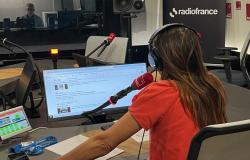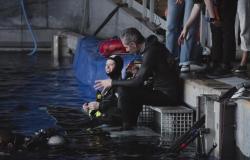the essential
Established in Mas-Grenier (Tarn-et-Garonne) since 1986, the research branch of the Dutch seed company Barenbrug tests and selects the products of tomorrow.
Barenbrug, a family business created in 1904 in the Netherlands, is the world specialist in meadow and lawn seeds. It has been established in France since 1976 and has three research stations in Champagne, Brittany and Occitanie. The Mas-Grenier branch (Tarn-et-Garonne) dates from 1986, particularly suited to selection for drought resistance.
It covers four municipalities, or 140 hectares, but only 8 belong to the company, the rest being rented to farmers. It employs 14 permanent staff and 20 in season.
A leading player in France
Barenbrug is the leading French producer of fodder grass and lawn seeds at the forefront of environmental solutions, combining the best varieties and the best techno-seeds for meadows and lawns (professional and general public lawns). It all starts with the selection criteria.
The starting point is a cross between plants, 50,000 are planted every year in nurseries but only 5% are selected to then create varieties resistant to diseases, insects, drought, various degradations (turf on sports fields , racecourse…). The objective is to choose the best possible genetics. When the selected plants are validated, a first harvest is carried out. The new varieties are then tested on several sites in France and abroad for three years and only the best will be included in the French seed catalogs to be marketed, which, in total, will have required no less than fifteen to ten- seven years of work. Such a duration requires from researchers an ever more innovative strategy so as to be able to best respond to the needs of users, whether professionals for lawns and parks, sports fields or the revegetation of the environment (vines, roadsides, etc.) or farmers for forage species.
Lawns that use less water
The studies focus not only on resistance to drought, diseases and insects but also on the reduction of inputs (use of phytosanitary products, fertilizers, etc.), on their yield, on the quality of digestibility for fodder. Species include Italian ryegrass, tall fescue, cocksfoot, crimson clover and alfalfa.
DDM – HM
On the lawn side, research focuses on environmental and societal changes with less water, fertilizers or phytos, less mowing waste, without forgetting the aesthetic aspect and reduced maintenance. “Preserving the environment thanks to research results, going further than ever with more ecological lawns, without chemical weedkillers and capable of regenerating”, such is the objective of Barenbrug described by research director and breeder Stéphane Charrier. He also specifies that the company plays another role at the local level by being a sponsor of sports teams (FCGG, Bressols football, etc.)






